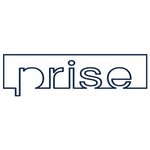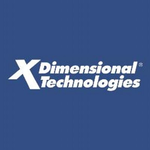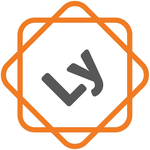Description

AQS Quoting Software

Eclipse
Comprehensive Overview: AQS Quoting Software vs Eclipse
AQS Quoting Software, specifically the Eclipse product, is a notable solution in the insurance industry aimed at streamlining the process of generating, managing, and analyzing insurance quotes. Here's a comprehensive overview organized according to your specified points:
a) Primary Functions and Target Markets
Primary Functions:
- Quote Management: Enables users to create, modify, and manage insurance quotes efficiently. It supports a variety of insurance products, making it versatile for different segments.
- Integration Capabilities: Offers integrations with third-party applications and databases, allowing insurers to pull in relevant data seamlessly.
- Automation: Automates routine tasks within the quoting process, reducing manual data entry and minimizing errors.
- Analytics and Reporting: Provides robust reporting tools to analyze quoting trends, performance metrics and generate actionable insights.
- Compliance and Security: Ensures that all quoting activities comply with industry regulations and standards, securing sensitive data with advanced encryption techniques.
Target Markets:
- Insurance Companies: Businesses looking to enhance their quoting process efficiency, improve quote accuracy, and stay competitive.
- Underwriting Agencies: Agencies that need a robust and fast solution to produce accurate quotes and manage risk assessments.
- Brokers and Agents: Professionals who require tools to produce quick, reliable quotes for their clients while maintaining detailed records.
b) Market Share and User Base
AQS Eclipse's market share and user base might not be publicly detailed in comparison to every competitor, but several key insights can be derived:
- Market Penetration: As a specialized product, Eclipse likely has significant penetration among mid-sized insurance companies and agencies looking for industry-specific solutions.
- User Base Characteristics: Users are mostly industry professionals who require specialized solutions that mainstream CRM or ERP systems might not fully address. This includes underwriters, agents, and brokers.
- Overall Market Share: While not a market leader, Eclipse holds strong positions in niches where depth of insurance knowledge and specialization are paramount.
c) Key Differentiating Factors
- Industry Focus: Unlike more generic software, Eclipse is tailored specifically for the insurance industry, offering features and functionalities that cater directly to insurers' needs.
- Customization Capabilities: Offers high levels of customization, allowing users to tailor the software to specific workflows and requirements, making it adaptable for various types of insurance businesses.
- Scalability: Designed to scale with business growth, adapting to increased volumes of data and users without losing performance quality.
- User-Friendly Interface: Focuses on a user-centric design that minimizes the learning curve, thereby enhancing productivity and user satisfaction.
- Comprehensive Support: Provides extensive customer support and training resources, ensuring that users can maximize the software's potential.
Overall, AQS Eclipse's strength lies in its dedicated focus on the insurance industry, providing a targeted solution that meets the specific needs of its users.
Contact Info

Year founded :
Not Available
Not Available
Not Available
Not Available
Not Available

Year founded :
1999
Not Available
Not Available
United Kingdom
Not Available
Feature Similarity Breakdown: AQS Quoting Software, Eclipse
When comparing AQS Quoting Software and Eclipse, both of which are widely used in the industry for insurance quoting and policy management, it's important to recognize both their commonalities and differences. Here's a breakdown based on the features and aspects you've mentioned:
a) Core Features in Common
-
Quote Generation and Management
- Both AQS and Eclipse provide robust platforms for generating and managing insurance quotes. They allow users to input data and quickly generate quotes for customers.
-
Policy Management
- Both software solutions offer policy management features, enabling users to maintain, update, and track policies throughout their lifecycle.
-
Integration Capabilities
- Both systems are typically designed to integrate with other essential systems like customer relationship management (CRM), document management, and accounting software.
-
User Access and Permissions
- They provide user access controls and permissions, ensuring that only authorized personnel can access sensitive data.
-
Reporting and Analytics
- Both AQS and Eclipse offer reporting and analytics features that allow users to generate reports on various metrics, helping to inform business decisions.
b) User Interface Comparison
-
AQS Quoting Software:
- AQS tends to offer a straightforward and functional user interface, focusing on ease of use for frequent tasks like quote generation and policy management. The design is typically utilitarian, prioritizing function over form.
-
Eclipse:
- Eclipse may present a more modern and customizable interface, providing users with options to personalize dashboards and workflows. This level of customization can enhance user experience but may come with a steeper learning curve initially.
c) Unique Features
-
AQS Quoting Software:
- AQS might include specific features tailored to particular types of insurance, such as unique industry-specific modules that are not available in Eclipse. These could cater to niche markets or product lines.
- It could also have specialized algorithms for rate calculations that provide advantages in certain competitive scenarios.
-
Eclipse:
- Eclipse often includes advanced document management and automation features, allowing for a more seamless handling of paperwork and communication with clients.
- It may offer more extensive customization of workflows and processes, enabling users to tailor the software more precisely to their business practices.
In summary, while both AQS Quoting Software and Eclipse share many core features essential for handling insurance quoting and policy management, differences typically arise in user interface design and customizable features. AQS might focus on straightforward industry-specific functionalities, whereas Eclipse could stand out with its customizable and potentially more aesthetically sophisticated interfaces. Choosing between them often depends on specific business needs, user preferences, and any unique features that cater to their operational model.
Features

Not Available

Not Available
Best Fit Use Cases: AQS Quoting Software, Eclipse
AQS Quoting Software and Eclipse are designed to streamline quoting and proposal processes, but they cater to different business needs and scenarios. Here's a breakdown of their best-fit use cases:
AQS Quoting Software
a) Ideal Types of Businesses or Projects
- Manufacturing and Engineering Firms: AQS Quoting Software excels in managing the complexities of quoting for custom products and services. Businesses involved in manufacturing, engineering, and construction often require detailed quotes that account for material costs, labor, and customization.
- Custom Product Vendors: Companies that offer highly customizable products benefit from the software's ability to handle intricate variations and options efficiently.
- SMEs (Small to Medium Enterprises): These businesses can leverage AQS for its cost-effectiveness and ease of use, enabling them to automate and simplify their quoting processes without the need for extensive resources.
b) Scenarios Where AQS is Preferred
- Complex Pricing Structures: When businesses need to deal with tiered pricing, bulk discounts, and numerous product configurations, AQS provides the tools to manage these efficiently.
- Integration with Existing Systems: For companies looking to integrate their quoting system with CRM, ERP, or customer databases, AQS offers flexibility and compatibility with a wide range of existing technologies.
- Rapid Quote Turnaround: Businesses that require fast quote generation to stay competitive find AQS valuable in reducing lead times and improving response rates.
Eclipse
a) Ideal Types of Businesses or Projects
- Retail and Distribution: Eclipse is often utilized by companies in wholesaling, retail, and distribution due to its capabilities in handling large inventories and complex pricing rules that change frequently.
- Subscription-Based Models: Businesses offering subscription services can leverage Eclipse for its features that support recurring billing and pricing adjustments.
- Larger Enterprises: With a robust set of features, Eclipse is well-suited for larger companies that demand more comprehensive and scalable solutions.
b) Scenarios Where Eclipse is Preferred
- Advanced Inventory Management: Companies with extensive inventory needs and the necessity to automate inventory-related processes find Eclipse advantageous.
- Multi-Channel Selling: Businesses that operate across various sales channels (online, direct sales, retail, etc.) benefit from Eclipse’s ability to unify and manage quoting across these platforms.
- Global Operations and Compliance: For businesses that operate internationally, Eclipse offers features to manage different currencies, taxes, and compliance requirements efficiently.
d) Catering to Different Industry Verticals or Company Sizes
- AQS Quoting Software: Best for small to medium-sized businesses in sectors like manufacturing, engineering, and construction due to its customization capabilities and ease of integration. AQS focuses on providing tools that help manage complex pricing and quoting processes.
- Eclipse: Targets medium to large enterprises in retail, distribution, and global operations. Its support for multi-channel selling, advanced inventory management, and scalability make it ideal for dealing with larger datasets and more intricate operational requirements.
Both AQS Quoting Software and Eclipse offer distinct features tailored to different business needs, ensuring that companies can choose a solution that best fits their operational objectives and industry demands.
Pricing

Pricing Not Available

Pricing Not Available
Metrics History
Metrics History
Comparing undefined across companies
Conclusion & Final Verdict: AQS Quoting Software vs Eclipse
Conclusion and Final Verdict for AQS Quoting Software vs. Eclipse
When evaluating software solutions like AQS Quoting Software and Eclipse, it's essential to consider several factors such as functionality, ease of use, cost, customer support, and integration capabilities. Both products target business processes with unique strengths and weaknesses, appealing to different user needs.
a) Best Overall Value
Taking all factors into account, Eclipse generally offers the best overall value, particularly for businesses looking for comprehensive, industry-specific functionality combined with robust customer support and integration capabilities. However, AQS Quoting Software may be the preferred choice for companies focused strictly on quote management with limited ancillary needs.
b) Pros and Cons
AQS Quoting Software:
-
Pros:
- Specialization: Tailored specifically for quote management, providing deep features for creating, tracking, and managing quotes.
- Ease of Use: User-friendly interface designed for sales teams to operate efficiently without steep learning curves.
- Cost-Effective for Small Businesses: May be more affordable for businesses needing targeted solutions without extensive customization.
-
Cons:
- Limited Integration: May not integrate as seamlessly with other business processes or software solutions, potentially requiring manual data entry or workarounds.
- Scalability Issues: May not scale well for larger enterprises with complex needs beyond quoting.
- Support and Updates: Possibility of limited customer support and infrequent updates compared to more established solutions.
Eclipse:
-
Pros:
- Comprehensive Functionality: Offers a wide range of capabilities beyond quoting, including project management, CRM, and analytics, making it suitable for various departments.
- Integration: Excellent integration capabilities with other software systems, enhancing data flow and process efficiency across the organization.
- Scalability: Designed to grow with the business, supporting complex and diverse operational needs.
-
Cons:
- Complexity: The broad range of features can lead to a steeper learning curve, necessitating more extensive training for optimal use.
- Higher Cost: Typically more expensive, which can be a barrier for small businesses with limited budgets unless they fully utilize the additional functions.
- Customization Needs: May require extensive customization to fit specific business models, which can complicate implementation and increase costs.
c) Recommendations
For users deciding between AQS Quoting Software and Eclipse, consider the following recommendations:
- Assess Your Needs: Determine whether your primary need is solid quote management or if you require a comprehensive business solution with various functionalities.
- Budget Considerations: Evaluate your budget not just for the software itself but also for potential customization, training, and integration expenses.
- Integration Requirements: If your business relies heavily on seamless integration between departments and software applications, Eclipse might be a better choice.
- Long-term Growth: Consider your company's growth trajectory. If you anticipate significant scaling, Eclipse may offer the versatility needed to support future developments.
- Trial and Feedback: If possible, take advantage of free trials or demos to gauge firsthand which software aligns better with your team's workflow. Gathering feedback from actual users in your organization can provide valuable insights.
In summary, the choice between AQS Quoting Software and Eclipse will depend on your organization's specific needs, budget, and long-term strategic goals. Eclipse stands out for those seeking a multi-faceted and integrative toolset, while AQS Quoting Software remains a strong option for those focused on quoting efficiency at a potentially lower cost.
Add to compare




